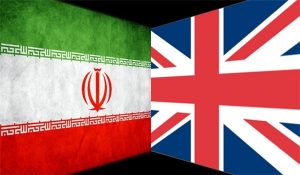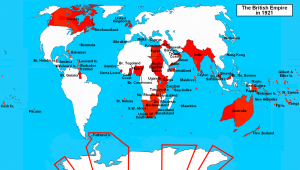The British Labour Party Uses Humanitarian Assistance as a Means of International Diplomacy In the Twenty-First Century
The British Labour Party’s Anti-Colonial Doctrine:
“The Labour party always considers itself primarily a socialist party and only to a limited extent as Marxist. Its organization and doctrine grew out of the pragmatically oriented British trade- union movement and an old humanitarian Christian reform ideal, which at times entered a phase of social and political radicalism and took over the liberal inheritance. This characteristic tradition of the British working- class movement, which survived in years to come in spite of the adoption of some Marxist theories, also determined the Labour party’s colonial doctrine.”5
The British Labour party until 1945 did not have an anti-colonialist doctrine that could differentiate it from the continental social parties. “In 1900 led by Bernard Shaw and Sidney Webb, the Fabian Society even openly supported imperialism and rejected the Pro-Boer attitude of leading liberals.”6 But, in the years that followed, Sydney Oliver, C.R. Buxton, Mary Kingsley and E.D. Morei’s influence, who represented the liberal or radical tradition, made itself felt. They were more interested in the actual situation in the colonies than in a theory of imperialism. They demanded more active reform, to improve a lot of the native population, instead of the withdrawal of the colonial power. “Hobson provided the Labour party with a ‘doctrine’, since he interpreted colonial imperialism in economic terms; however, Hobson was not a socialist nor even a Marxist, but a radical reformer who anticipated the concept of trusteeship in his demand for and ‘enlightened’ colonial policy.”7
During the First World War the Labour party had already adopted the mandate principle of the future league of Nations and also made international control a focal point of its colonial programme. In this there were two aims: “to prevent anew rivalry for colonial acquisition among the world powers, and to replace capitalist exploitation by a policy reform which would ‘develop’ backward ‘people’ and prepare them for self-government.”8
In addition to two-above mentioned goals, not only did the Labour party want “a detailed formation of mandate principle and a well-defined system of international control; it was even more concerned with subordinating all the colonies to the League of Nations.”9 In the following years the Labour party demanded to extend the mandate principle to all European colonies. However, the SFIO (French Socialist Party), unlike the British Labour party, was interested in assimilation and not self-government, which was the object of the mandate policy, and thus showed no interest in the British Labour party’s initiatives.
Labour’s support for trusteeship and later the policy of ‘gradual grant of self-government’ helped to establish a certain basis of trust between the mother country and the nationalist leaders. Such an attitude did, to some degree, contribute towards creating the Modern Commonwealth – a Multinational Institution.
This examination firmly indicates that the Labour party is overtly ideological. It stresses the need for equality – equality between classes and between races. It insists on equality of opportunity and, even, equality or near-equality of rewards. Social provision is given a very high priority by the Labour party. It advocates an extension of public ownership and/or control. In foreign affairs the Labour party is “far less expenditures and closing overseas bases than any Conservative government is ever likely to be.”10 It is “parochial and fervently anti-colonial.”11



